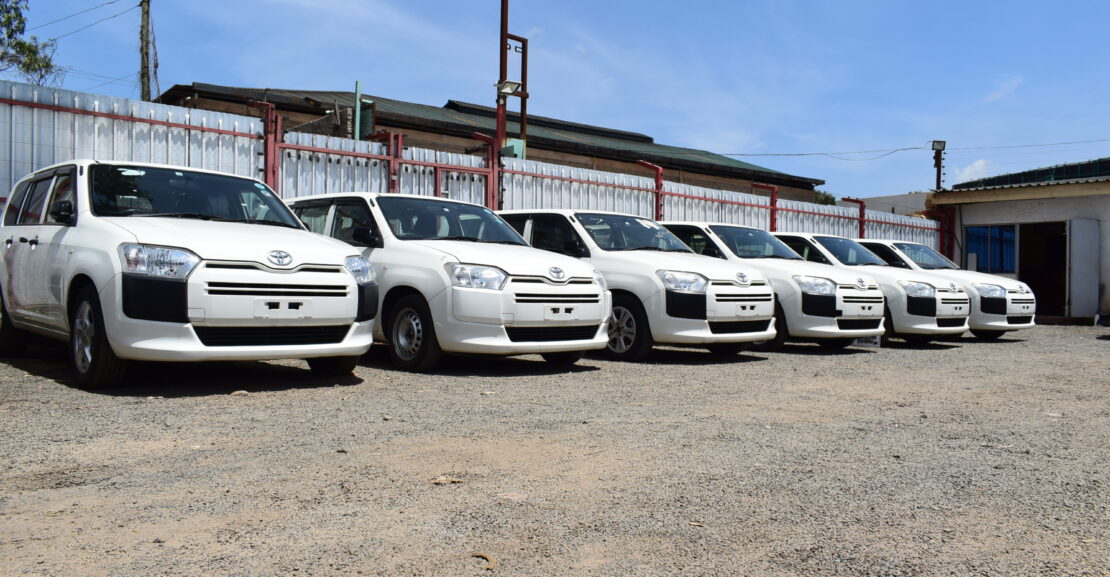Kenyan citizens have significantly reduced their spending on the importation of motor vehicles, experiencing a nearly 20% decrease due to heightened taxation, a weakened national currency, and shortages of pre-owned units. This trend indicates a potential revenue deficit for the tax authorities.
Recent data highlights that the total value of vehicle imports during the ten months leading up to October reached $680 million (approximately Sh102 billion). In comparison, the same period a year ago saw imports totaling $825 million (Sh123.75 billion). This equates to a notable decline of 17.58%, equivalent to $145 million (Sh21.75 billion), as reported by the Central Bank of Kenya based on statistics gathered by the Kenya Revenue Authority.
The double-digit decline in vehicle imports occurred in response to heightened taxation in the sector, which was implemented following a shortage of second-hand units in international markets earlier in the year.
Over the 12 months leading up to October, imports experienced a more rapid contraction, with a decrease of 19.17 percent. The provisional data reveals that the total imports during this period amounted to $852 million (approximately Sh127.80 billion), down from $1.05 billion (Sh158.10 billion) in the preceding period.
The expenses associated with importing vehicles have surged this year, driven by the depreciation of the national currency against major international currencies and escalating borrowing costs, part of the measures implemented by CBK Governor Kamau Thugge to counter demand-induced inflationary pressures.
The Kenya Auto Bazaar Association, representing second-hand car dealers, had previously cautioned that the elevated shipping costs for cars would impact orders for the year. Charles Munyori, the secretary-general of the association, stated in a recent interview with the Business Daily, “What we see happening is that people are changing their preferences because of higher prices. Some people who would have preferred to buy a Prado, for example, may decide to import a Nissan X-Trail. For importers, if you are bringing in 10 Harriers, you may cut it to seven because of the high costs.”
Vehicle imports constitute a significant source of government revenue, and a decline in their value signifies a downward trajectory in revenue. In July, the Kenya Revenue Authority (KRA) responded to this by increasing the duty on imported cars from 25 percent to 35 percent. This decision followed the approval by the East African Community Council of Ministers for Kenya to levy a higher rate than the 10 percent common external tariff (CET) for the seven-nation East African Community (EAC) bloc.
The importation of vehicles is further subject to excise duty, ranging from 25 percent to 35 percent based on the engine size, in addition to the standard 16 percent value-added tax (VAT). Excise tax is calculated on the sum of the landed cost of the car and import duty, while VAT is applied to the resulting value (the sum of the landed cost, import tax, and excise duty).
The decrease in spending on vehicle imports coincided with a period during which local assemblers and dealers faced a 14.05 percent decline in orders for new units. Reports from local firms, including Isuzu and CFAO Motors Kenya (formed after the merger of Toyota Kenya and DT Dobie operations in May), indicated that orders for new vehicles totaled 9,684 units in the January-October 2023 period. This represented a notable decrease from the 11,045 units recorded in a similar period the previous year.
Treasury Secretary Njuguna Ndung’u has expressed concern about the impact of the declining vehicle imports on targeted revenues, highlighting potential repercussions for other commodities such as fuel and beer. The reduction in both new and imported vehicles indicates broader economic implications that extend beyond the automotive sector.
“The decline in excise duty is attributed to reduced oil volumes, diminished motor vehicle imports, and decreased deliveries of domestically excisable goods such as cosmetics, beer, and spirits,” stated the Treasury official in the 2023 Budget Review and Outlook Paper (BROP), finalized in November.
According to data from the Central Bank of Kenya (CBK), sourced from the Kenya Revenue Authority (KRA), the value of petroleum product imports experienced a substantial drop of 26.57 percent. In the ten months, the imports totaled $3.26 billion (approximately Sh488.40 billion), down from $4.43 billion (Sh665.10 billion) in a similar period the previous year. This decline is attributed in part to the global fall in prices. Additionally, the local sale of Super and diesel has faced pressure since the previous year. The combined impact on oil imports and domestic sales contributes to the overall shortfall in excise duty outlined in the budget report.

